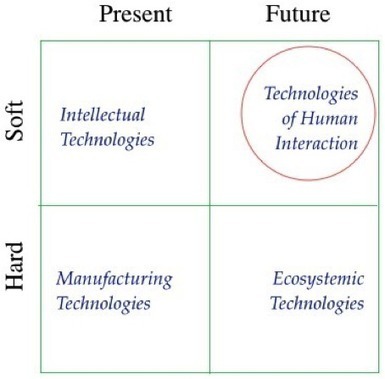What we need are Technologies of Organizational Communion (TOCs) to serve as evolutionary guidance systems for the Technologies of Information and Communication (TICs – aka ICTs) that now stand the chance of connecting us not only with each other, but with the planet, with future generations, and most importantly, with ourselves. * Article: Alexander Laszlo, …
Research and publish the best content.
Get Started for FREE
Sign up with Facebook Sign up with X
I don't have a Facebook or a X account
Already have an account: Login
on peer-to-peer dynamics in politics, the economy and organizations
Curated by
jean lievens
 Your new post is loading... Your new post is loading...
|
|














